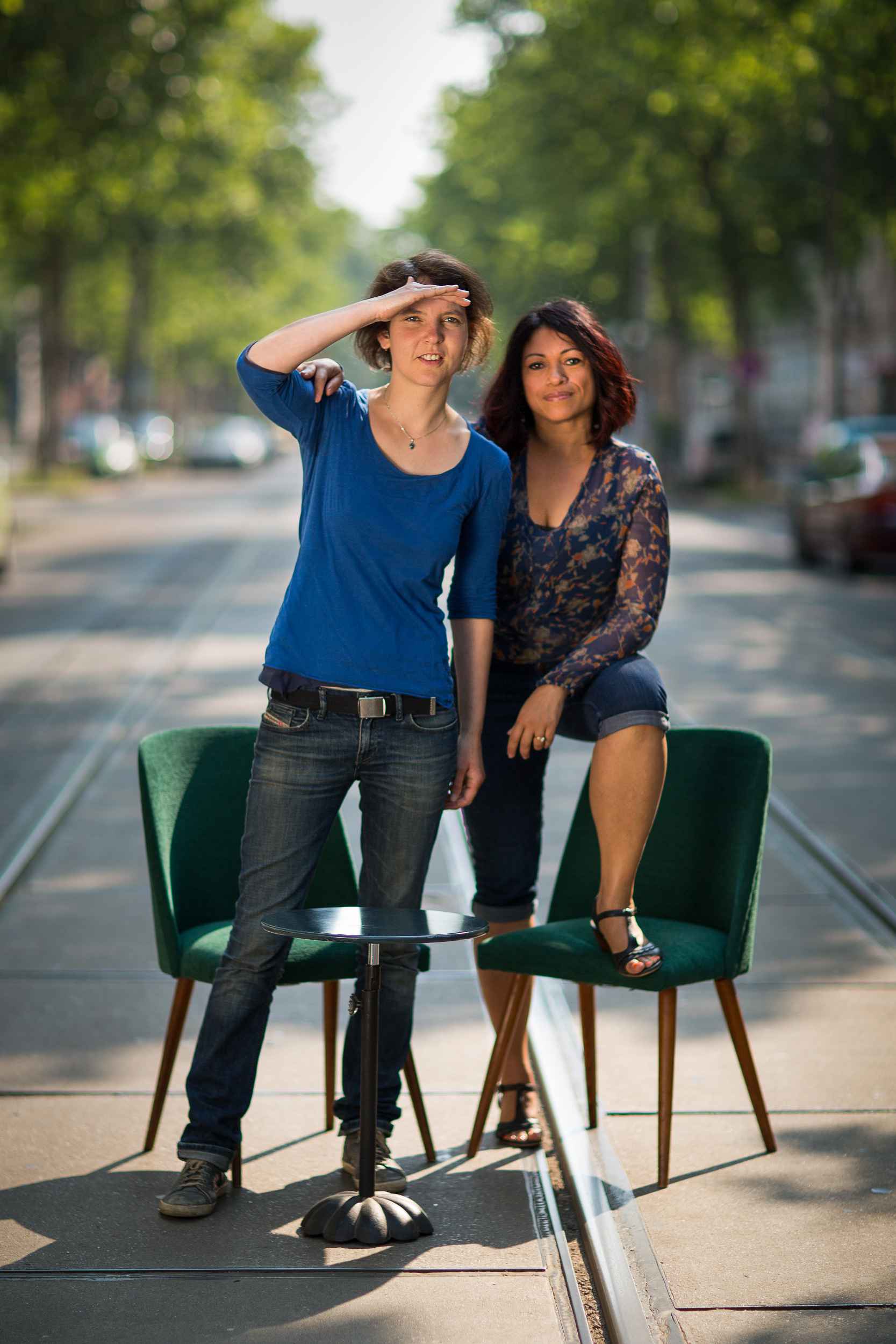A guest article by Petra Mattheis and Sascha Nau about the beginnings of Bohei & Tamtam. In July 2016 they talked to Eurcaris Guillen and Katja Berger about the Wunderwesten project when the first street festival was being planned and carried out.
The aim was and still is to make the quarter visible as a craft and artists’ quarter, to offer those working here a platform to present their products on the street and thus attract new players.
How did you get to Leipzig?
Katja: I came to Leipzig to study in 1998 and worked for six years at the Schaubühne after graduating. Initially as an intern, finally as a production manager. That’s why I also know the quarter and its development. In the beginning I lived in the east, later in the Waldstraßenviertel in a flat-sharing community. We had to move out in 2010 because the house was sold and renovated to a high standard. With our settlement we bought a house in the west of Leipzig.
You’ve already insisted on severance pay in 2010. Was that already usual then?
Katja: We were among the first here in Leipzig to get a good severance pay. We had a committed lawyer who accompanied us through the process for two years. He came from Berlin and this practice had been customary there for some time. It was clear to us that we could not stay in the Waldstraßenviertel as alternative living people. We had constant stress with the residents. For the residents there it’s okay if crowds of people move through the neighborhood to watch football in the arena. But when we had a barbecue, the police came immediately.
How many of your flatmates got back together here?
Katja: We were 18 and nine put the money in the house in the west of Leipzig.
And is that going well? Did you line up as an association?
Katja: We rented the house as an association and bought it later.
So someone can’t sell his part on his own?
Katja: No, we are all tenants and have a normal tenancy agreement. We sign our own rental contracts, that’s funny. So far it works well. We didn’t have to come together again as a house group. We have lived together for many years as a circle of friends and we knew what we wanted. A house that we can design ourselves, in which we can move freely and also lay out the bed in the courtyard without having to ask anyone for permission. In the end, we obtained from the real estate company that we could take many things with us – the stoves, the bathtubs. We took everything with us that was not permanently installed.
»We organize the street festival out of motivation to penetrate the urban space and development to influence the course.«
Because it would’ve been thrown out anyway?
Katja: Yeah, sure, they gutted everything. For reasons of monument protection, however, we were not allowed to take the Art Nouveau stoves with us. Who knows whether they still stand there today or whether they were nevertheless knocked off. We took the sockets and light switches with us. We still know today that the light switch in our hallway used to be installed in the kitchen.
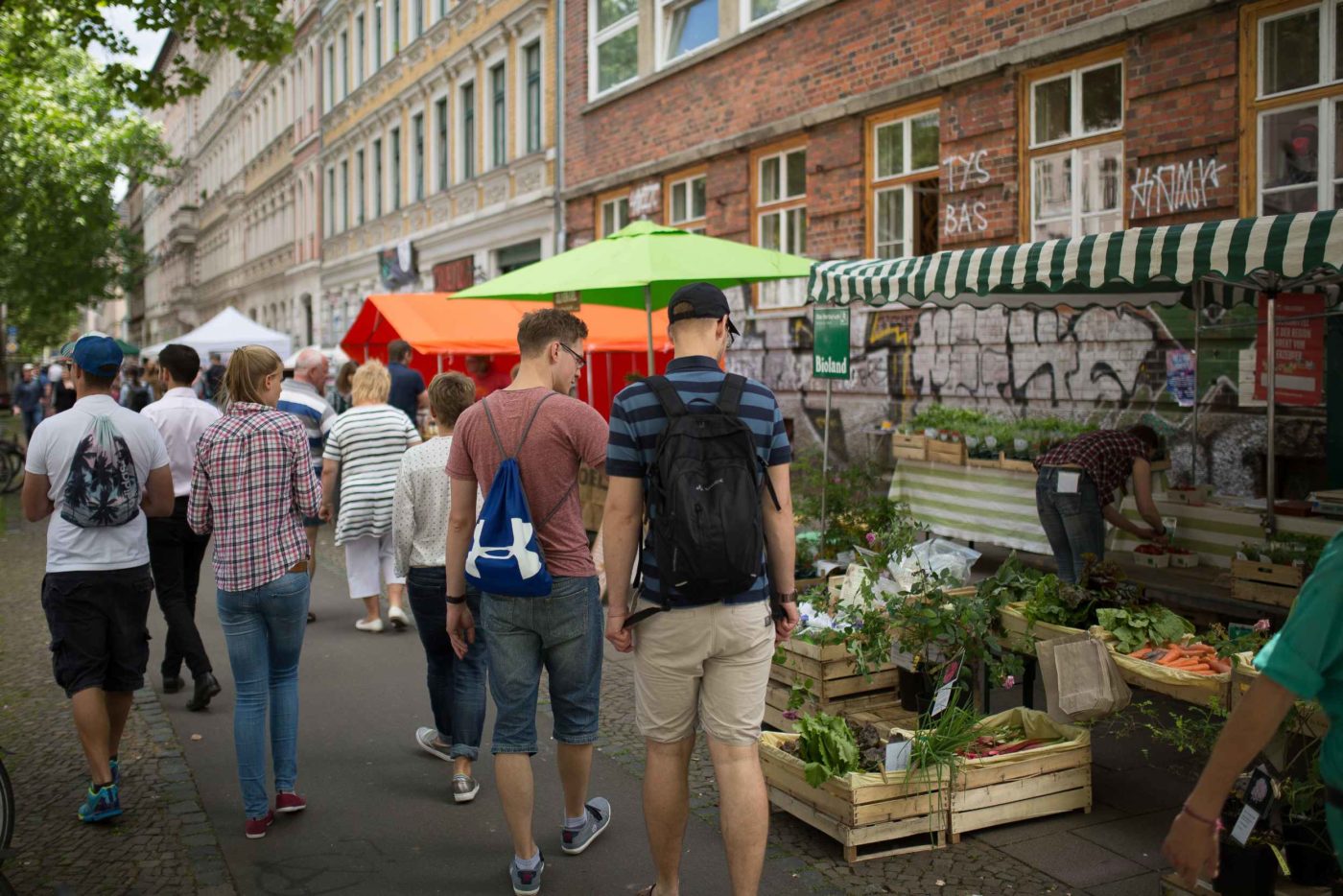
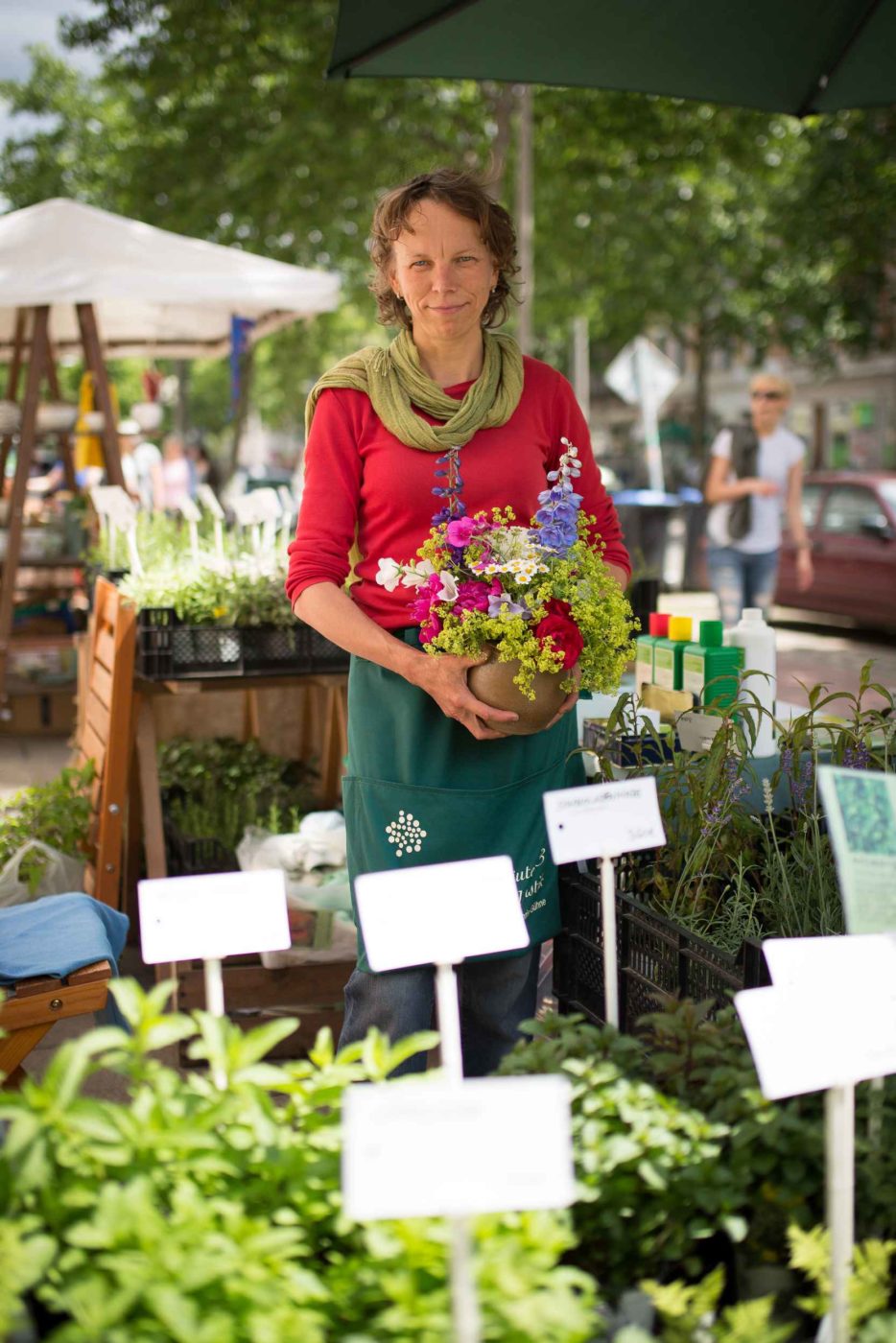
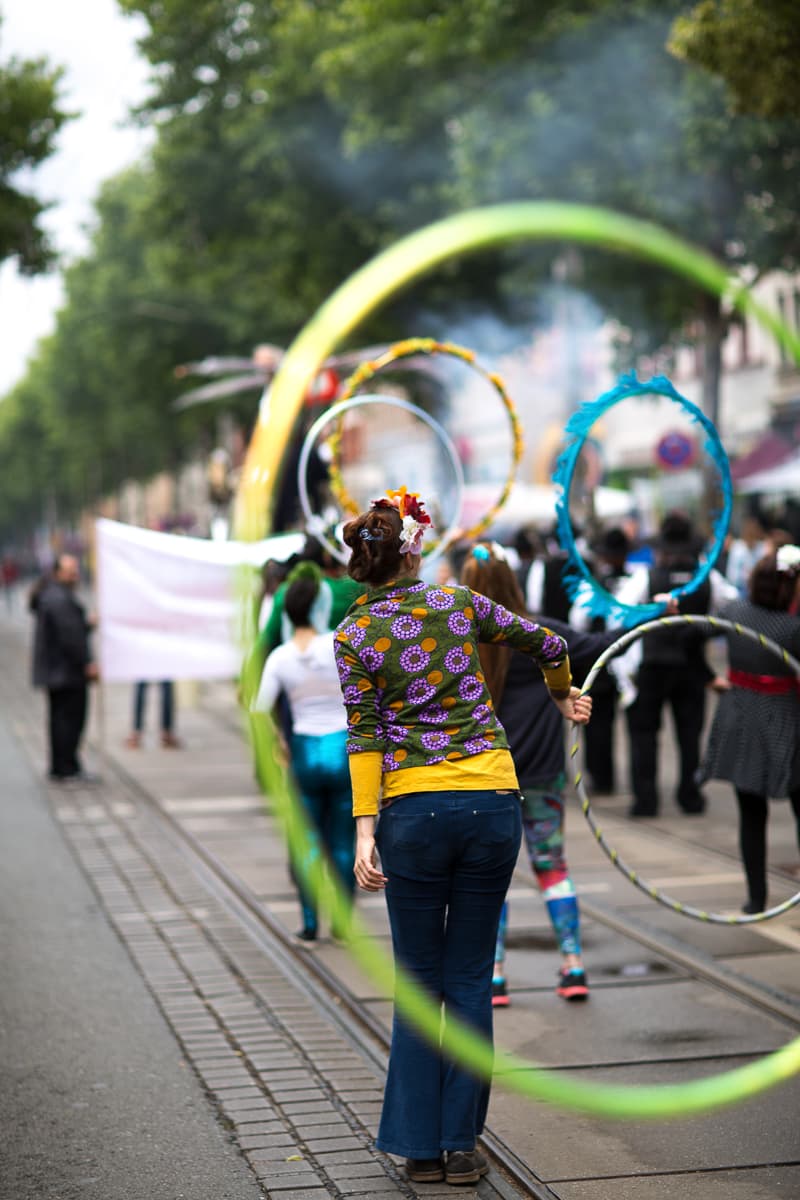
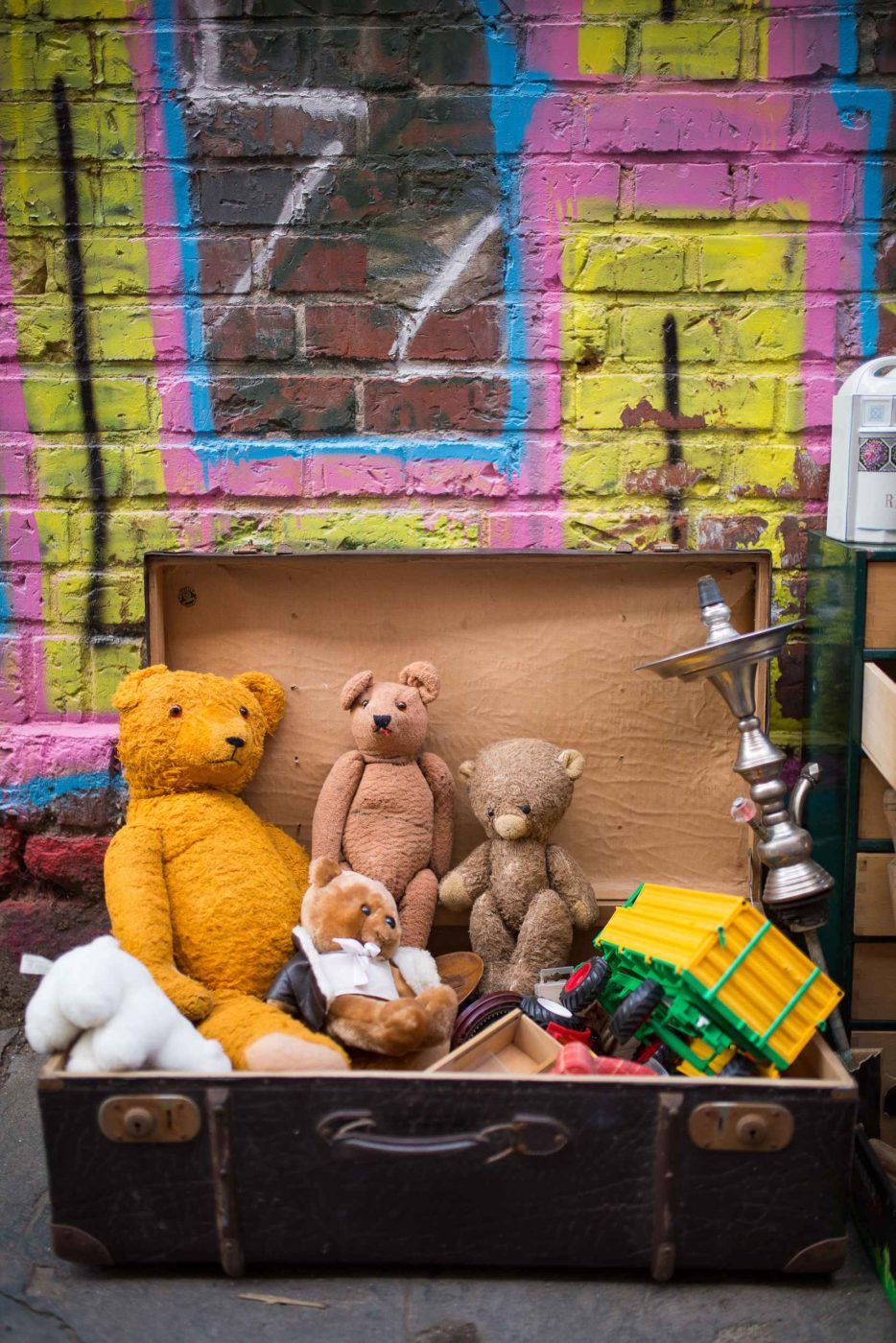
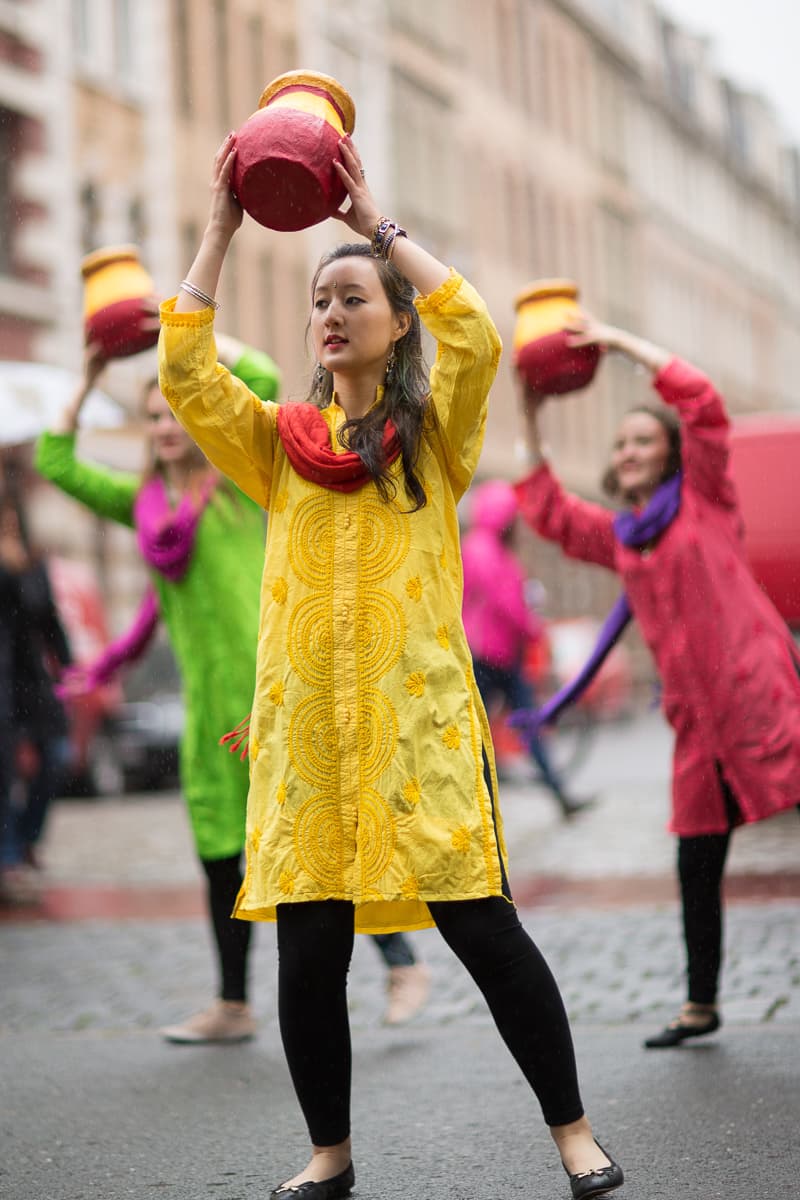
How did you experience the Waldstraßenviertel fifteen years ago?
Katja: There were more students than today. But what wasn’t there were pubs and places to go out. Everything took place in private. There were many WG houses with which we had a good contact and occasionally also celebrated. Meanwhile it has become very chic there. Now there is more gastronomy on the Jahnallee. In former times you had to look when mum and dad came and you wanted to go out. Therefore also the consideration to go to the west of Leipzig, because there was still a lot of free space there. We weren’t the first in 2010, but we weren’t the last either. The LWF has published its Gründerzeit houses only over a period of a few years in hereditary lease. That was attractive. Where does one still have this possibility now? Perhaps in the east of Leipzig.
If the city is planned and developed at some point and you can’t find a neighborhood where there’s still space, where to?
I suppose you’d have to go to Vogtland, small towns and get something done.
Do you play with that thought?
No, not really. We organize the street festival precisely out of the motivation to penetrate the urban space and the development to influence the course. We can still help shape the course.
We’ll get to that in a minute. Eu, how did you get to Leipzig and why?
Eucaris: Life brought me to Leipzig. A friend challenged me. When I was almost twenty years old, I had to decide within two weeks whether I wanted to play this game and be ready to study on another continent.
A friend challenged you?
Eucaris: Yes.
Katja: Did you lose a bet and had to go to Leipzig?
Eucaris: Yeah, something like that. This friend had already seen more of the world than I had. I came from Panama and had not left the country yet. At that time Panama was in a politically difficult situation and I knew some people who went to Canada or the USA to study.
Actually, I didn’t have the ambition to go abroad at that time, but I knew about the announcement of a scholarship for studying in Germany. I knew nothing about the division of Germany at that time. My political education was zero. I applied and a carefree bet suddenly became reality. That was in 1988 and I had to teach my parents out of the blue at the age of twenty that I had received a scholarship and would go to Leipzig. We thought that if I didn’t like it, I would go back. My sister’s husband was stationed in Würzburg at that time, from our point of view at that time as being close by. That’s good. Sure, there’s a wall, I thought, but that’s probably just a wire mesh fence. But everything was completely different. In the beginning it was a huge shock.

»The city was black and broken. It felt as if the war had only recently ended. And yet it was incredibly fascinating.«
So you came to Leipzig just before the fall of the Wall? Then you witnessed the fall of the Berlin Wall personally?
Eucaris: Yes. I arrived in Berlin at the time and it was said that we would drive on the motorway to Leipzig. During the drive I asked naively where the BMWs and Mercedes were? I only saw very small cardboard cars. I was not prepared for it. It soon became clear to me that it would not be so easy to visit my sister after all.
The city was black and broken. It felt as if the war had only recently ended. And yet it was unbelievably fascinating how everything was done and regulated here. The people were completely different, for me they were so pure, they were not spoiled for consumption. They were happy about every little thing. That was impressive and beautiful to see. I have learned technologies that no longer existed in Panama. Maybe in a museum, but no longer in practical use. Writing was still cast out of lead, there was no color photography, it was like a journey back in time.
I went with other students to the Monday demonstrations to get us involved. We also experienced the phase of right-wing radicalism. We had two fires in the dormitory on October 18th Street and we had to keep watch at night. That was a bad time.
Read the whole article now in German at Wunderwesten

